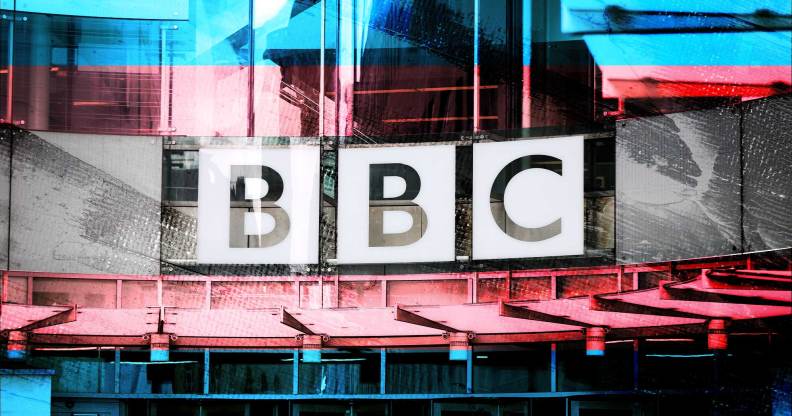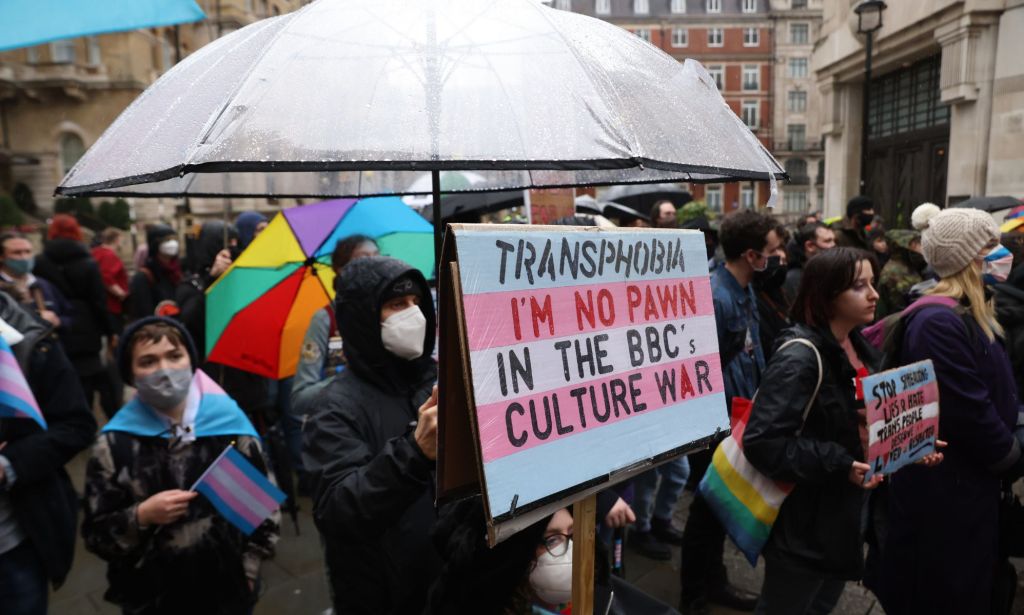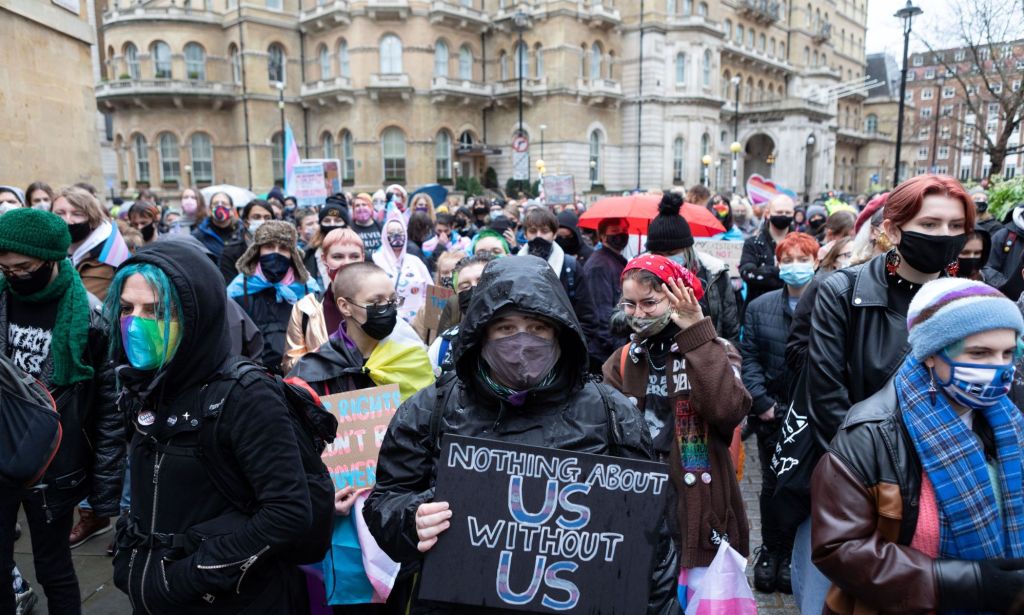Gary Lineker row proves what trans people have known for ages: the BBC is broken

Guidance provided to BBC staff advises editorial employees to avoid attending Pride and LGBTQ+ events in a bid to maintain impartiality. (Getty)
Guidance provided to BBC staff advises editorial employees to avoid attending Pride and LGBTQ+ events in a bid to maintain impartiality. (Getty)
The latest BBC impartiality row has laid bare what LGBTQ+ people have known for ages – the broadcaster’s no-bias policy is broken.
The BBC came under fire after it removed Gary Lineker from Match of the Day after the host compared the language used in the government’s new asylum policy with 1930s Germany. His tweets were deemed a breach of the BBC’s rules on “maintaining our impartiality on social media”.
Bosses later apologised and reinstated Lineker Monday (13 March) after a weekend of reduced football coverage, as commentators and staff refused to work in protest.
Many have accused the broadcaster of having double standards, pointing out occasions where presenters such as Alan Sugar have made similarly critical statements aimed at the government’s opponents. This is nothing new to LGBTQ+ people.
jane fae, chair of Trans Media Watch, says that “many minority groups” have been “shocked” over the past few years by the “verbal extremes to which quite senior folks at the BBC will resort to on Twitter when talking about minorities”.
“Especially in the sights have been trans people and Black Lives Matter cause,” she wrote on Twitter.
“Orgs like Trans Media Watch have been keen to suggest senior BBC managers stop doing this,” fae added.
“Because – the Tory case against Lineker – when people in the public eye use their social media power this way, it can feel very disproportionate to those on the receiving end.”
Speaking to PinkNews, fae noted that the BBC’s reporting on trans lives has become particularly contentious.

Director general Tim Davie considered trans rights to be an impartiality topic, which has led to the uncritical platforming of a number of gender-critical voices, like the LGB Alliance and Get The L Out, in the name of balance.
The BBC faced immense backlash in October 2021 after it published an article under the headline “We’re being pressured into sex by some trans women”.
The article attempted to provide ‘evidence’ for that claim from a single, self-selected survey of 80 individuals sourced from Get The L Out, a known anti-trans group. It also initially platformed porn performer Lily Cade, who called for trans women to be “executed”, later removing her contributions.
fae said that Trans Media Watch has a “continuing dialogue with managers at the BBC regarding its trans coverage.
The charity is “very concerned” that the British media, particularly the BBC, “treat all discourse centring trans people as a ‘two sides’ debate” or are framed as “trans vs feminists or trans vs women”.
“They seem to listen, but nothing ever changes,” fae said. “They talk about trans issues, but trans issues are health. They are waiting times. They are bullied at school. They are the assaults on the street. And we don’t see those.”

After the infamous 2021 article, Trans Activism UK sent an open letter to the BBC signed by tens of thousands of people demanding an apology and amendments to the article to “clarify the falsehoods and damage within”.
In its wake, protests against the BBC broke out in several cities – including outside its offices in Bristol, Cardiff, Manchester, London and Brighton.
Non-binary comedian Mae Martin joined in one protest, outside the BBC’s London offices, and slammed the broadcaster and other UK media outlets for continuing to “uncritically platform misinformed, demonstrably biassed and transphobic opinions”.
The BBC told PinkNews at the time that the article went through the publicly-funded broadcaster’s “rigorous editorial process” before being published and provided “appropriate context”.
In 2022, the BBC’s own complaints team found the article claiming cis lesbians are being ‘pressured into sex’ by trans women fell below the broadcaster’s editorial standards.
However, the BBC’s Executive Complaints Unit found the article didn’t perpetuate “harmful and negative stereotypes” about trans women because there is “no consensus on what constitutes a transphobic view”. This loophole meant the story “sufficiently” met the corporation’s impartiality guidelines.
The controversy was just one provocation in an ongoing attack against the trans community playing out in British media, and it was far from the first or last time the BBC was complicit in fostering hostility towards trans people.
In 2020, senior MPs and LGBTQ+ activists branded the BBC as “institutionally transphobic”.
In 2021, hundreds signed an open letter condemned the BBC for uncritically platforming anti-trans groups, while other have claimed it is “censoring” genuine trans issues.
Subsequently, LGBTQ+ staff quit the BBC in droves because of its “hostile” environment and because they didn’t believe the broadcaster was impartial on trans issues.
The BBC says it’s “committed” to achieving due impartiality in all output.
According to the BBC’s guidelines, impartiality must be “adequate and appropriate to the output, taking account of the subject and nature of the content, the likely audience expectation and any signposting that may influence that expectation”.
It must also “scrutinise arguments, question consensus and hold power to account with consistency and due impartiality”, the guidelines say.
A BBC spokesperson told PinkNews: “We are committed to providing expert coverage and analysis of LGBTQ+ issues and to exploring topics of legitimate public interest. We support all our colleagues to have fulfilling careers at the BBC and we’re fully committed to being an industry-leading employer on LGBTQ+ inclusion.”

